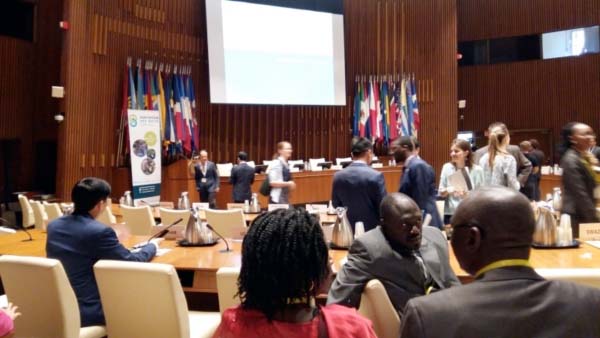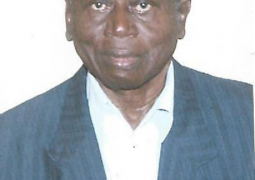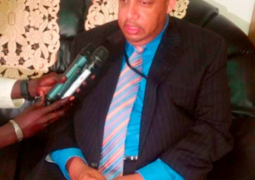
A
Gambian delegation namely; Hon. James F.P Gomez Minister of Fisheries, Water
and National Assembly matters, Hon. Saffie Lowe-Ceesay Minister of Health and
Social Welfare, Hon. Lamin B. Dibba Minister of Environment, Climate Change and
Natural Resources and Modou Njai Director of Health Promotion and Education,
has recently returned from a high-level ministerial meeting on water,
sanitation and hygiene, held in Washington D.C. in the United States of
America.
Speaking
on behalf of the Gambian delegation, Modou Njai, director of health promotion
and education, said the participation of these Gambian institutions was a clear
demonstration of a strong partnership in the drive to meet Sustainable Development
Goal 6.
He
thanked the UNICEF country representatives for facilitating the participation
of the Gambian delegates through technical and financial support.
“We
do hope that the strong partnership that exists between the key sectors in the
area of water, sanitation and hygiene (WASH) will be strengthened in all
levels,” Mr Njai said.
He
said the sanitation and water for All
(SWA) is a global alliance of over 150
partners, 50 of which are governments from low and middle income countries,
donors, civil society organizations and other government partners working
together to catalyze political
leadership and action to improve accountability and the use of scare
resources more effectively.
According
to Mr Njie, SWA is a global partnership that supports government-led national
processes to ensure sanitation, water and hygiene for all.
He said UNICEF hosts the secretariat of the
SWA partnership which is responsible for supporting the chair of the steering
committee as well as other members.
The
ultimate goal of the partnership was to achieve universal access to safe
drinking water, supply sanitation and hygiene.
According
to Mr Njie, ending open defecation was one of the commitments made by the government of The Gambia at the
high-level global sanitation and water for all meetings in Washington in April
2012 and 2014 as well as the 2015 Africa
SAN 4 Conference in Dakar.
Africa SAN 4 with the theme; “Making sanitation for all a reality in Africa,” is a
highly successful forum helping to realize the ethekwini commitments, South
Africa- Johannesburg in 2008 as well as being well-positioned to build momentum
on sanitation and hygiene for the sustainable development goals.
Mr
Njie further stated that in responding to the question on how could countries
achieve ambitious, safely managed sanitation services, while reducing
inequalities, given that people still do not have a basic level of services,
The Gambia was able to reduce sanitation inequality through the implementation of a
community-led total sanitation approach which was cost-effective and
sustainable.
He
said the presentation highlighted practical approaches and solutions in ending
open defection and promoting hand washing with soap and running water.
The
participants were drawn mainly from Latin America, Asia and Africa.
He
said during the presentation that eliminating inequalities in access to
sanitation was a priority for the government of The Gambia.
The
presence of strong support to end open defecation and improving water and
sanitation services, coupled with a strong political commitment was highlighted
in the presentation.




